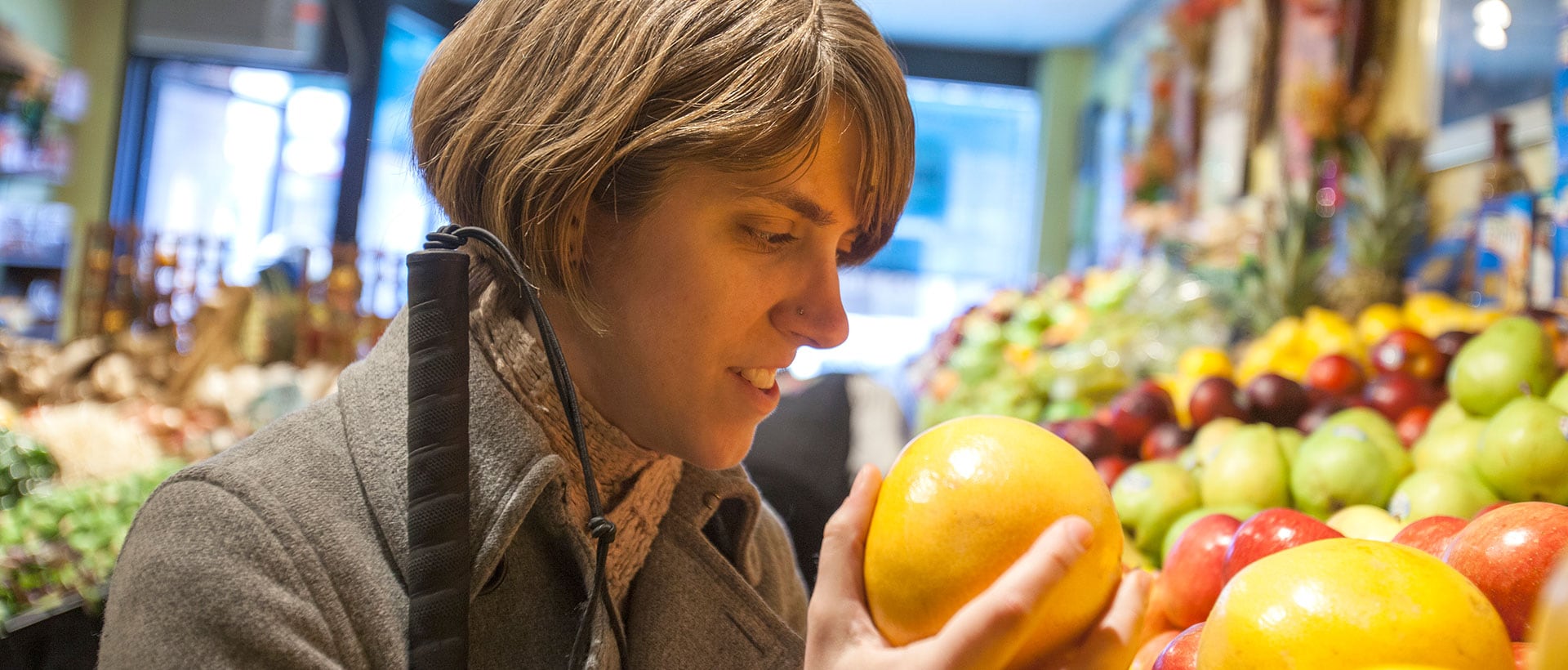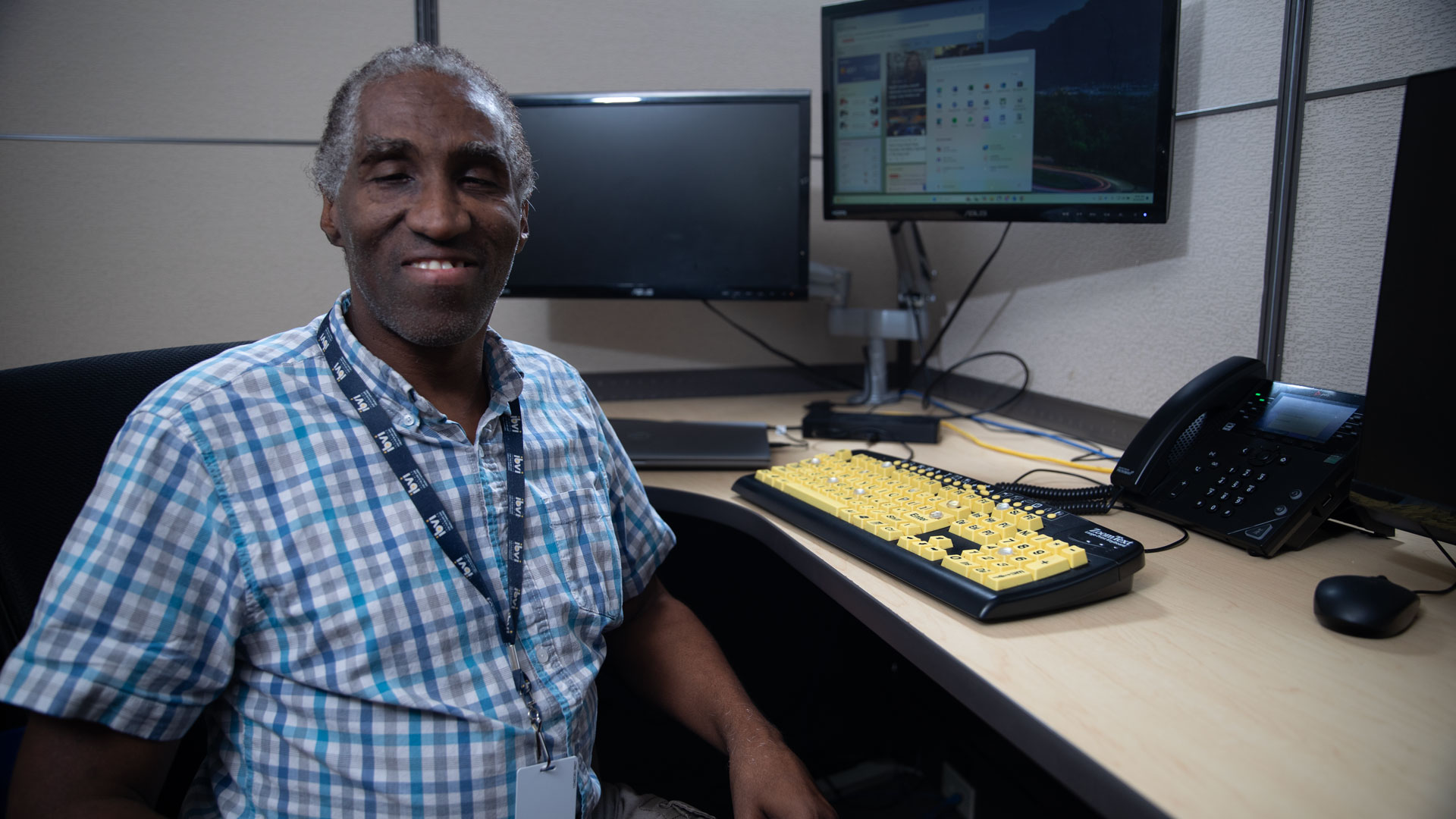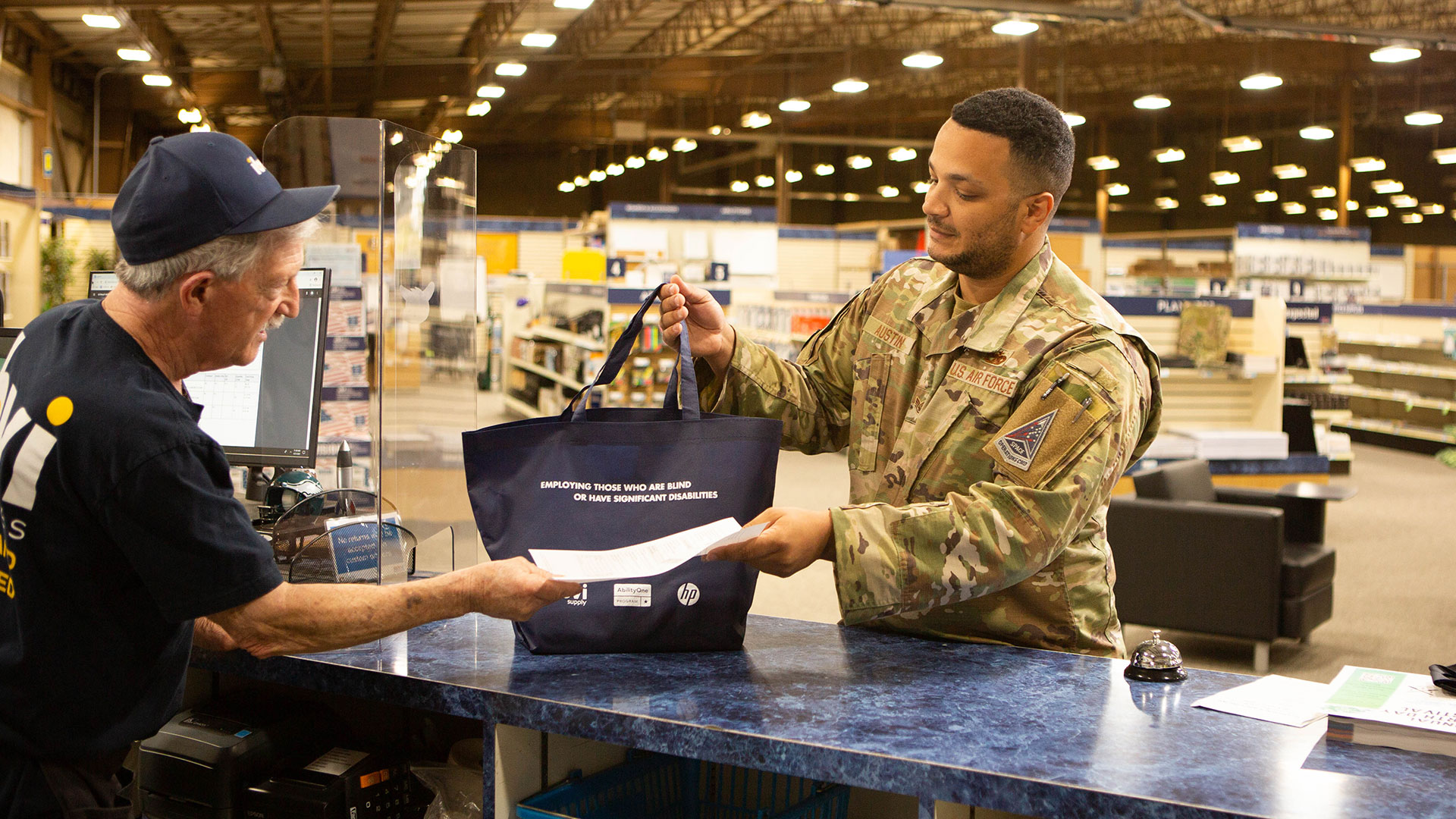How People With Low Vision Navigate Daily Tasks
February is Low Vision Awareness Month, a time for us to consider the importance of eye health and the challenges that people with low vision face. But what is low vision and who has it? According to the American Foundation for the Blind, “Low vision is uncorrectable vision loss that interferes with daily activities.” The key phrase that stands out to me there is “daily activities”. This isn’t just a situation where you put your contacts in and go about your day. People with low vision have to navigate life completely differently because of their low vision.
Everything from getting dressed, to commuting, to cooking, now comes with a new level of creativity. At IBVI, we champion the independence of people who are blind or visually impaired and doing daily tasks comfortably and efficiently is a part of that independence. I decided to research further how some of the daily tasks that people who are sighted take for granted are accomplished by someone who has low vision and has mastered these tasks in different ways.
Getting Dressed
We do it every day before we head out the door, but many of us don’t think about what we would do if we couldn’t see the clothes we were putting on. For those with low vision, once they get help (if needed) identifying the color of the article of clothing, there are several ways they organize them.
First, if an article of clothing has a memorable texture or shape, they may not need a system to identify the color. For other, more similar clothes, some people with low vision attach braille tags on the clothing that tells them the color. Another more fool-proof way to avoid mismatching is to make sure that all the clothes that you buy match, focusing on muted colors.
For other items, people often store shoes in labeled bags and safety pin socks together in the wash so that they stay together.
Commuting to Work
Having a job as a person with low vision is a huge step of independence, but in order to work, you have to get there and back. If people with low vision don’t have someone to drive them to work, they will likely take the bus, if one is available. But then that leaves them the task of getting to the bus stop or bus station. People who are blind or visually impaired often rely on a rideshare service like Lyft or Uber.
Regardless of the means of transportation, they often use a cane or a guide dog companion. Guide dogs, as you probably know, are far more than a pet. They play a vital role in keeping people safe and comfortable. Especially for those who are walking through busy city streets, a guide dog can change their daily lives.
Cooking
At first, you might think that cooking is really just about taste and smell, but much of cooking involves reading recipes, seeing how well-cooked a dish is, and measuring out ingredients. People who live independently with low vision who want to cook meals for themselves find plenty of ways to do so safely.
In fact, I found out that back in 2012, a blind contestant made it to the final stages of the TV cooking show “MasterChef”. Her name is Christine Ha, and according to an article from the BBC, she has a lot of innovative ideas for cooking at the highest level without sight.
One thing that people who are blind or visually impaired tend to master is knowing your space. Most people who cook a lot know where everything is in the kitchen, but for people who are blind or visually impaired, it’s vital. For safety, Ha uses a saucepan instead of a frying pan when cooking with hot oil so that it doesn’t spill or splash. Also, she uses oven mitts that go up higher on her arms so she doesn’t burn her arms on the oven. Lastly, technology can always help. Ha uses talking meat thermometers and scales to clue her in on the little details of precise recipes. Or, there are smart speakers that can set timers for or read recipes.
With low vision, it’s not just about managing, it’s about thriving in your independence. It just takes patience, creativity, and dedication to stick to a system that works for you. In honor of Low Vision Awareness Month, we appreciate all of our employees and friends who choose independence.


